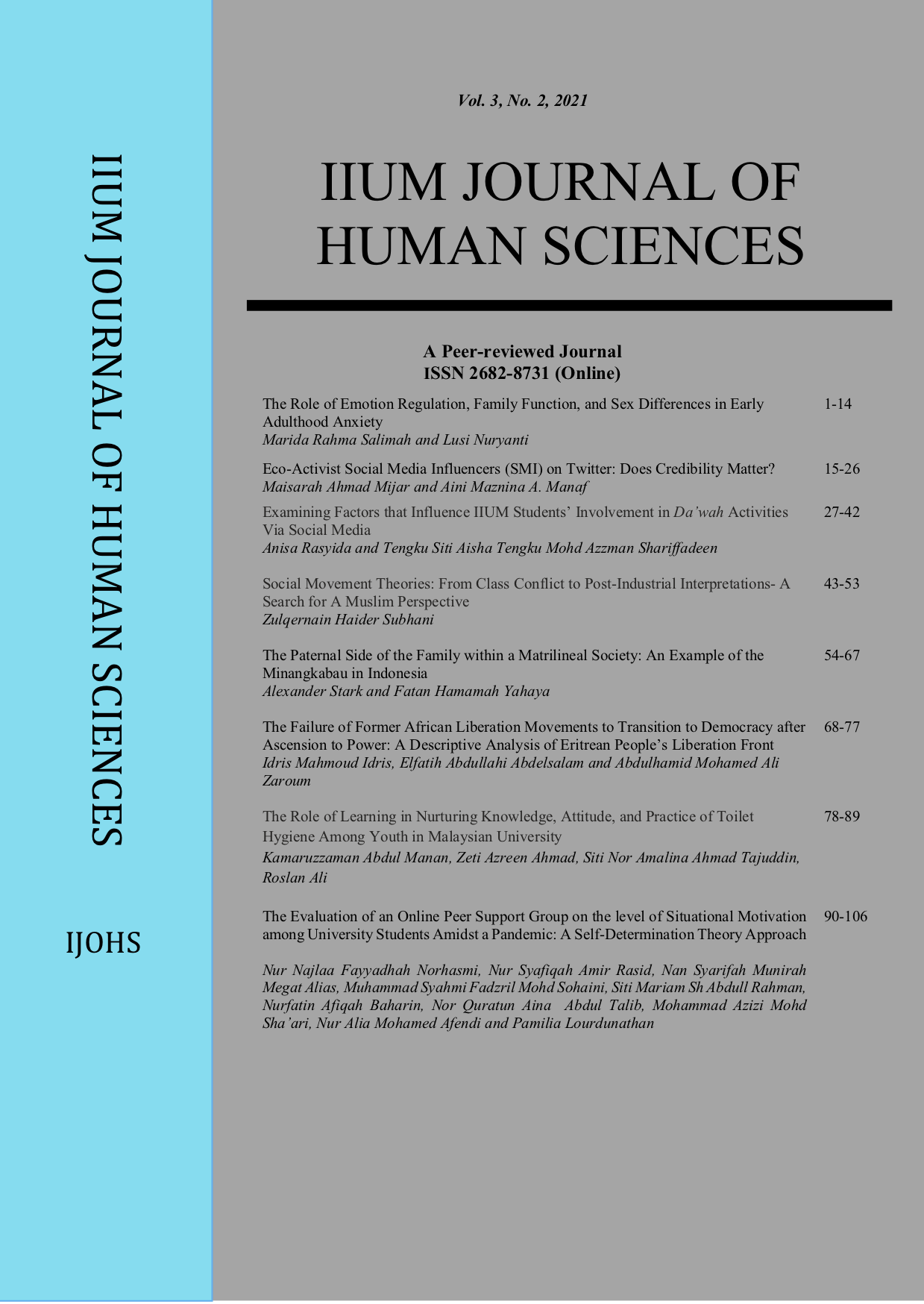The Role of Emotion Regulation, Family Function, and Sex Differences in Early Adulthood Anxiety
DOI:
https://doi.org/10.31436/ijohs.v3i2.213Keywords:
Anxiety, Emotion regulation, Family function, Sex differences, Early adulthoodAbstract
Anxiety becomes one of the most common disorders in the world and the early adulthood phase becomes anxiety-prone because of all the demands and stressful conditions. In addition, anxiety also involves complex biological, psychological, and socio-cultural phenomena. This cross-sectional study examined the role of emotion regulation, family function, and sex differences in early adulthood anxiety. The study used convenience sampling technique and involved 222 participants (20.27% of male and 79.73% of female) aged between 18 to 30 years (M=24.9, SD=3) were assessed with State-Trait Anxiety Inventory (STAI), Emotion Regulation Questionnaire (ERQ), and Family Assessment Device (FAD). Data analysis used ANCOVA and multiple regression. The results suggest that emotion regulation, family functioning, and sex differences simultaneously play a significant role in anxiety (p=0.000). Emotion regulation, family function, as well as sex differences, partially indicated a significant role in anxiety (p=0.018, p=0.000, p=0.008). Therefore, enhancing emotion regulation ability and strengthening family function can be one way to prevent or minimize the likelihood of anxiety.










